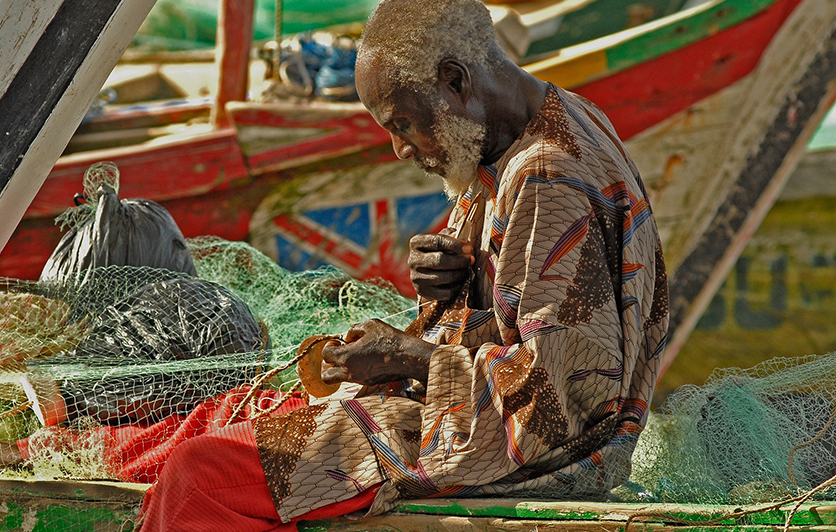-
Home
- Home Desak Nyoman Parwati
- Desak Nyoman Parwati

Desak Nyoman Parwati
<b>Update, Jan. 2021</b><br><br>
?My name is Desak Nyoman Parwati, and I was born in Gianyar, Bali, in 1972. I like singing, sports and organizing. People say I am a firm, patient but talkative woman. Life has many happy and sad things, but never give up on anything; no matter how difficult the situation is, life must go on. That's my motto. <br><br>
?I'm married to Dewa Made Yadnya, who was a tour guide but is now working at home, supporting me in the garment business. We have been blessed with 3 children: Dewa Gede Suar Dinata, Dewa Ayu Saras Tia Devi Swasnita and Dewa Gede Kusuma Antara. Children make me very happy as well as troubled, because at the beginning of starting this business, I had to leave my children with relatives while working. But now that this business is running smoothly, I am so happy that I can see my children grow and develop. I feel very peaceful to see them grow up in good health. <br><br>
?I am the 7th child of 11 siblings. My father was a farmer, while my mother sold traditional cakes. There were so many happy memories during my childhood; at that time children played outside, and were not busy with their smartphones. The river water was clear and the beautiful scenery of Bali was so perfect. <br><br>
?I was very close with both of my parents. Every day after school I brought lunch for my father who worked on the farm; we would eat there together and chat about the day. After that I helped him to scare birds away with my loud voice! When the sun was setting, we walked home together. Arriving at home, my mother, brothers and sisters always greeted us and waited for us to have dinner together. If one of us was not there, we wouldn't eat, because in our opinion the simple things of togetherness and gratitude are important. However, we did not enjoy this beautiful atmosphere for long, because my father became sick and passed away. <br><br>
?After that, my life became very hard and sad because I was missing my father. Since he was the one who really financially supported this family, my siblings and I worked at a very early age to help my mother with the living costs. And because of this situation, I decided not to continue my studies and focused on working to get a better life for the family. <br><br>
?When I was 16, I started to learn about this garment work myself, thinking about the great opportunity of this business. We went through a difficult experience after I got married; we didn't have a house, and worked very hard to get orders from clients. The main problem for batik work is the weather conditions; during rainy season, the results of batik are often different in color. The drying process by the sun also affects the result, so traditional batiks rely on the weather. <br><br>
?Around 2001 there was a friend who introduced me to NOVICA. I am very grateful to know NOVICA; it's helping me to develop our products and quality with online global market targets. NOVICA has been supporting and promoting my products in many events and projects, and I feel so grateful that my products are selling well. The income from it keeps improving year to year; it's supporting my family and also business expansion. <br><br>
?Batik robes and kimonos are my favorite products; they make my business run well and keep improving. I have shops, and I manage this business myself with the help of family and around 15 workers, one of them a disabled person. I design new items myself; the idea and inspirations are from exhibitions and trends. I manage the workers based on their skills and passions. The materials we use are rayon, cotton, linen, silk, jersey, etc. We produce traditional hand-drawn batik using chanting and wax; we also have hand-stamps. We complete the traditional processes in-house. It is a great technique inherited from our ancestors. We love to show this cultural inheritance to people, and inspire youth who really want to learn about it.?<br><br>
<b>Original Bio</b><br><br>"My name is Desak Nyoman Parwati and I was born in Bali in 1972. I learned how to make batik from Desak Putu Nithi, in 1989. When I worked with her, she taught me many things about textiles and hand-painting batik. I liked her dedication to her work and her concern for the people working with her. On March 5, 2000, I started my own art workshop.<br><br>"I create various kinds of dresses from hand-painted batik textiles. I get inspiration from the model magazines. I take some designs I like from magazines and adapt them to the Indonesian culture. I work with rayon, cotton, linen, and crinkle cloth to make dresses, sarongs, yoga pants and robes. I also create wall hangings in batik.<br><br>"I have built my career step by step. I started by asking my neighbors to come to my place to look at my collection and place orders if they liked one of my designs. Now, there's so much to do I need the help of several assistants! High thanks to you for promoting artists to the whole world, especially artists from Bali."


